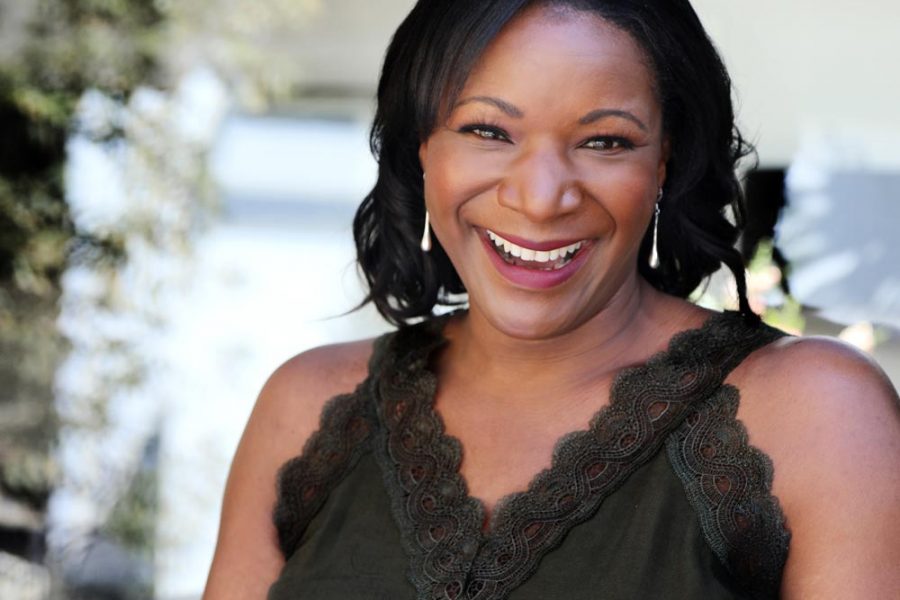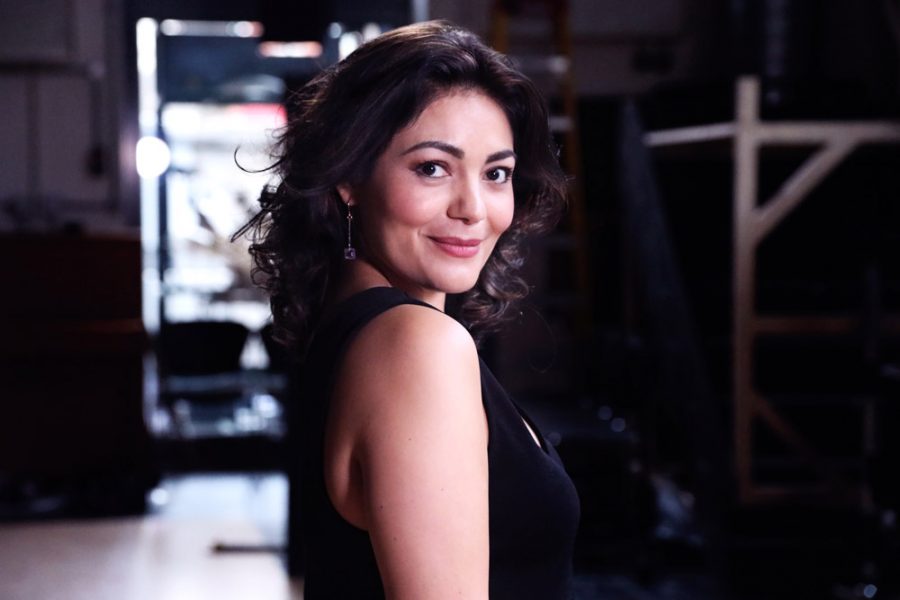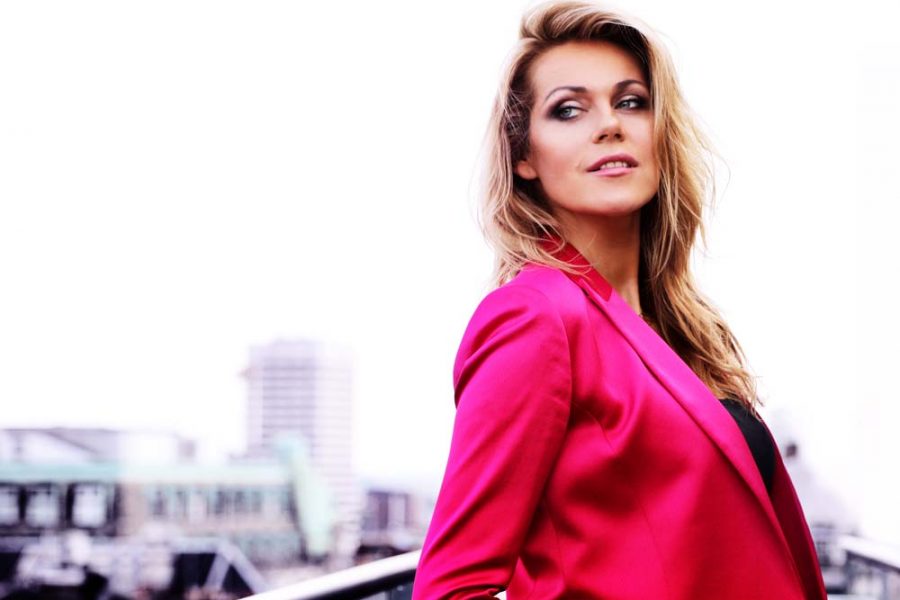The Singing Siren: Shelly Watson

April 2015
Words by
Emer Nestor
Photos by
Frances Marshall
‘A rambunctious, over-the-top soprano of considerable charm…’
— New York Times
The effervescent, feisty, and superbly talented Shelly Watson gives us a refreshing insight into her exciting journey from El Camino community college to Juilliard, and chats about her current residency in the New York Burlesque scene. Known as ‘the singing siren’, this award-winning soprano has tread the boards of the Metropolitan Opera and New York State Theatre, thrilling audiences with her virtuosic prowess. A woman of many talents, Shelly is currently contracted to the New York Theatrical troupe, Company XIV.
I had no idea I would be interested in opera myself, but I LOVED all the Merrie Melody Cartoons."

What kind of music did you listen to as a kid growing up in California and Nevada?
My parents had different taste. My dad loved country and my Mom was mostly folk and Motown then disco.
Did you know much about opera before your high-school singing teacher suggested you take that direction?
I didn’t know anything other than what I was exposed to in media. Bugs Bunny as a Valkyrie, fat ladies in ball gowns in Three Stooges skits etc… I had no idea I would be interested in opera myself, but I LOVED all the Merrie Melody Cartoons. The music was astonishing and my favorite cartoon to this day is ‘Owl Jolson’ — the story of an owl who is born to a classical music professor, and all he wants to do is sing jazz. Google it…it’s worth it!
Unlike many students of the performing arts, your own path to Juilliard was quite by chance — how did the opportunity arise, and what did you expect?
Well, I was scouted from a community college to attend CSUN on a full vocal scholarship. I drove 90 minutes each way for over a month, taking classes, and one day got called into admin. They said “you only have 22 credits from ECC and they’re in weight training and choir…you need to go back and get an AA or more credits. We’ve tried every way to get you admitted otherwise, but it just can’t happen…We’re sorry“.
I was terrible at math and sad to say that I’d never made it past Algebra. I knew I couldn’t go back. I told my choir teacher and she said there were schools where you didn’t have to take math and could study just music. Um…yes please! I’d seen the movie Fame and thought it would be awesome! It turns out it was based on the school across the street (La Guardia Performing Arts HS) not Juilliard!!! NO one really singing and dancing in hallways…unless I started it…and I did…a lot!
Tell us about your audition?
Musically, I only had what was required: 1 song in English and 1 in another language. I’d never sung in another language! I sang ‘Deh Vieni’ from Figaro. After I sang, Beverly Johnson said: “Your enthusiasm is great, but your diction is atrocious…Please sing it again but try and calm down“. I did as she directed and was then asked to sing my other song — the ‘Embroidery’ Aria from Peter Grimes. The airlines lost my luggage so I was wearing a pair of red levis, black sandals and white v neck tee. I asked them to imagine me in a blue and white dress with sling back pumps [she laughs].
Not having much musical training prior to entering Juilliard, how did you initially cope with the intense theoretical curriculum?
When I came to Juilliard I had 22 credits divided between weight training and choir from El Camino community college. I’d always sang my face off, but never learned to sight-read. I’ve always had an amazing ear. Theory was brutal. I kicked ass in all my classes except theory. I was on academic probation for the first 2 years there.
Sometimes the structural and technical side of analysis can impact on creativity — do you agree with this, and if so, how did you reconcile both in your personal development as a singer?
Fantastic question! Let’s look at species counterpoint (pushes glasses up nose). They give you all these rules about voice leading etc…, and then they say “do what you want!” It’s the same with education. Use it as a tool to enhance your gift not define it! I’m positive I was just doing an impersonation of an opera singer the first few years I studied. It was easier for me to assign these rules to THAT part of my voice. I’d then piece-meal what worked for me, and add it to what I was born with.

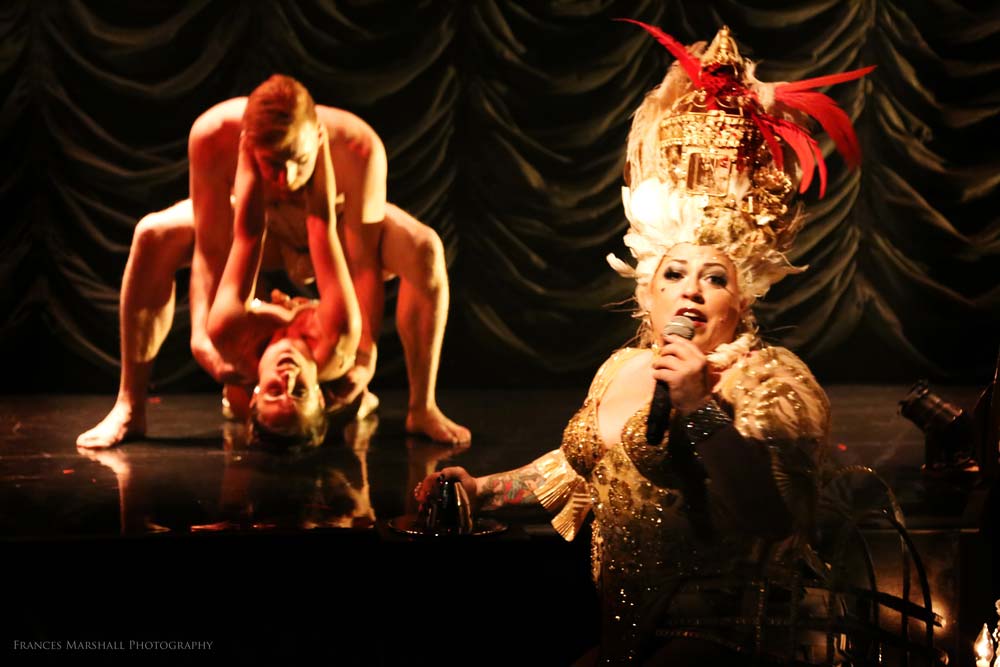


I may not have been the most academic person there, but I performed in almost every masterclass and special project, and even started a few programs myself. I thrived in it."

Who did you study with, and what lasting memories have you of that experience — the good and the bad?
I was assigned to study with Edie Bers. However, I’d known someone there from ECC as well who studied with Simon Estes, so I asked to be transferred. His specialty was African American Baritones. Go figure!! He traveled a lot so students were given to Charles Kellis, who was Simon’s teacher. I’d been approached by Beverly Johnson to study with her, but felt a sense of loyalty to Mr Kellis. I got along famously with my language teachers, coaches and jury judges, and had a lot of respect among the staff for my tenacity and unique expressionism.
How competitive was that environment?
I was never worried about competition. I kicked ass at the J Ranch. I may not have been the most academic person there, but I performed in almost every masterclass and special project, and even started a few programs myself. I thrived in it.
Why did you continue on to Masters level?
After struggling to make my mark for 5 years, I wanted time to really explore making Art with everyone in all programs. I had almost full scholarship at this point and that helped tremendously.
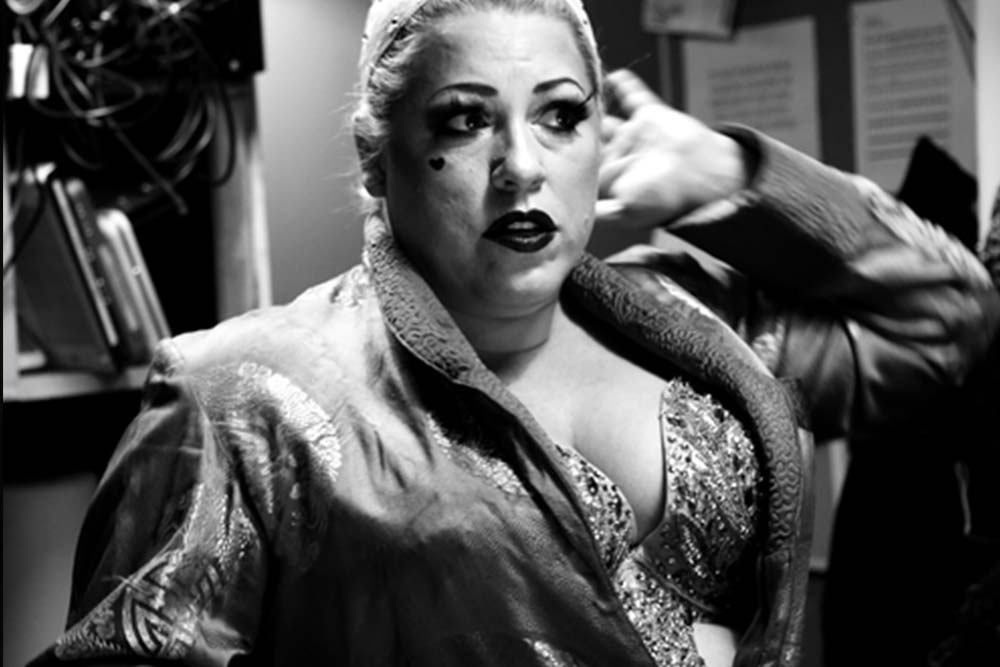


How did you feel about the entire operatic experience?
Everything felt free for me vocally. I absolutely loved doing every possible kind of music. Renée Fleming once said “Opera singers are the Olympic athletes of singing“. Premiering new music was especially rewarding. I couldn’t read worth shit so I’d memorize the sounds. A 13th up, down a minor 6 to a flat 7, to clucking my tongue. Modern music was a blast!
What were the highs and lows for you?
Highs: premiering music, performing with astounding people, learning from world famous teachers, coaches and artists.
Lows: difficulty with French enunciation, and theory.
I was on academic probation for 2 years because of theory, but I smoked it in ear training! I could use my index finger and strike it on my desk like a pitchfork and hear my ‘perfect A’, but was told that was cheating. I never understood that!
Is a full time career in opera a possibility?
Of course, but it’s not how you’d think. I do voice overs, host shows, do recitals, work roles, create new music, teach, premiere new works. HUSTLE! That’s how I’ve ‘made a career in opera’. There are very few Joan Sutherlands in this world. I get paid to sing. Opera — I’ve made my own career.
What attracted you to the fascinating world of Burlesque?
I’ve been involved with the Mermaid Parade/Coney Island scene here in NYC for years, and along the way I met some great people who were into Burlesque. They asked me to sing at a show. They then asked me to host. It took off from there. It’s been 12 years! It’s a great match for me.
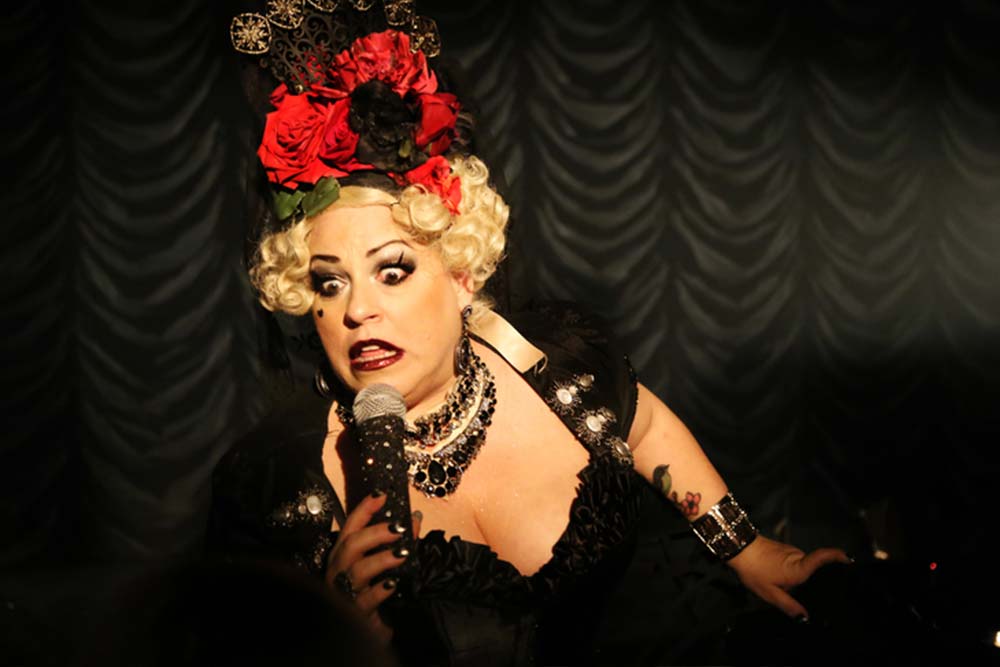

Do you draw upon your time at Juilliard in your interdisciplinary style of performance?
I have always enjoyed collaborating. Juilliard introduced me to so many artists at once, in every field, and it was wonderful being able to draw on every possible avenue available to me.
Tell us about your ‘Hip Hopera’ radio show — how do people react to it?
I’ve done it for over 10 years. I take hard core rap songs and do operatic covers of them! It’s nationally syndicated and always a huge hit when I throw it in at recitals!
How would you describe your unique brand of Burlesque?
I emcee and perform to connect with people. I am influenced by what their vibe is that night. I think that my life experiences from BOTH ‘sides of the track’ has given me a very unique perspective. Anything is possible. If you really believe it — it will work!
Do you ever suffer from performance nerves?
I only feel nervous if I’m not prepared. Performing is the easy part. I am invigorated by people’s energy whether 5 or 5,000 people. Memorizing words to a new piece, and pronunciation in a foreign language make me nervous.
What does the future hold for Shelly?
More of me doing ME. As Oscar Wilde said “Be yourself, everyone is already taken“. That’s my motto!
All images displayed in this article are subject to copyright.
Share this article


